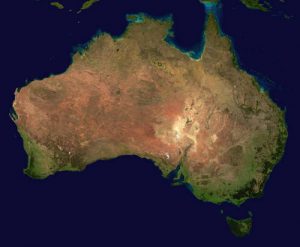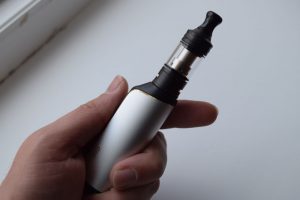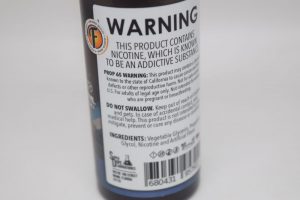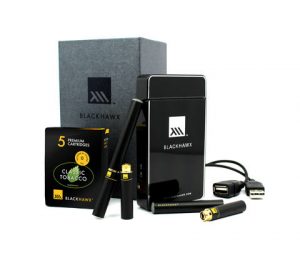Australia’s Top Vaping Entrepreneur Highlights Negative Effects of Nicotine Ban
Australian vapers recently dodged the proverbial bullet after the Government decided to postpone a ban on nicotine import scheduled for July 1st until 2021, but that only bought them a few months. The owner of Australia’s largest vape shop recently sat down with journalists to explain the dangers of a nicotine ban not only to the country’s 300,000 e-cigarette users, but also to the millions of smokers looking for a less dangerous nicotine delivery method.
 All Australian states had already banned the sale of nicotine, but this month, the national Government announced the closing of the only legal avenue for buying nicotine refills – importation for personal use. Technically, anyone importing nicotine was required to have a doctor-issued prescription for the addictive substance, but the law was largely being ignored. Under recently-announced legislation, that would have no longer been the case, with anyone caught importing nicotine facing a fine of AU$ 222,000 ($152,000).
All Australian states had already banned the sale of nicotine, but this month, the national Government announced the closing of the only legal avenue for buying nicotine refills – importation for personal use. Technically, anyone importing nicotine was required to have a doctor-issued prescription for the addictive substance, but the law was largely being ignored. Under recently-announced legislation, that would have no longer been the case, with anyone caught importing nicotine facing a fine of AU$ 222,000 ($152,000).
The controversial legislation, which had the support of Australia’s Cancer Council, Heart Foundation and the Royal Australian College of General Practitioners, among others, was officially supposed to reduce the risk to public health through addiction to nicotine and nicotine poisoning, but failed to take into consideration the hundreds of thousands of vapers, which, many public health and tobacco control experts agreed would have had disastrous consequences.
In fact, the Australian Health Minister, Greg Hunt, got so much backlash after the announcement of the legislation that, less than a week before it was scheduled to come into effect, he announced a postponement until 2021.
In an official statement, Mr. Hunt said there was a “group of people who have been using these e-cigarettes with nicotine as a means to ending their cigarette smoking. In order to assist this group in continuing to end that addiction we will therefore provide further time for implementation of the change by establishing a streamlined process for patients obtaining prescriptions through their GP.”
“This will give patients time to talk with the GP, discuss the best way to give up smoking, such as using other products including patches or sprays, and if still required, will be able to gain a prescription.”
So Australian vapers will still be able to import nicotine for personal use without a prescription until next year, but the few days in which everyone though the end was coming have given those in the industry a taste of things to come. Max Fichkin, who runs ‘The Steamery’ vape shop in Sydney, recently sat down with the Australian Daily Mail and highlighted the negative effects of a nicotine ban.
“What I’m hearing is that every single retailer of nicotine in New Zealand – which is the quickest way to get it into Australia – is officially sold out,” Fichkin said. “There are people that are buying it by the litres in response to what the government has done.”
Stockpiling is a natural response to prohibition, but that only delays the inevitable. Supplies eventually run out, and at the point, e-cigarette users are faced with three options, of which only two are actually viable – quit cold turkey or using one of the Government-approved nicotine delivery aids (gum, patches, etc.), go back to smoking tobacco, or turn to the black market for nicotine/nicotine-containing e-liquid.
Most vapers had already tried quitting multiple times, so for them the first option has already failed at least once, leaving them with two choices, both considerably worse than the status quo.
“Taking a customer’s choice away forces them to make decisions that they should not have to make to begin with,” Max Fichkin said. “Taking someone’s choice away only makes the situation worse. Vapers will be forced to have to break the law and look at black market means to source nicotine. This means sourcing a product from a completely unregulated, uncontrolled supplier, where the risks are far greater.”
Max Fichkin said. “Taking someone’s choice away only makes the situation worse. Vapers will be forced to have to break the law and look at black market means to source nicotine. This means sourcing a product from a completely unregulated, uncontrolled supplier, where the risks are far greater.”
Australia currently imports nicotine from countries where the substance is being regulated, which is undoubtedly better than buying something and having no idea where it comes from, or if it adheres to any safety standards. Then there is the group that will simply refuse to expose themselves to legal trouble and potential health issues, and just go back to smoking tobacco cigarettes.
“No one is saying that vaping is safe, but it’s safer than smoking, and that is the biggest concern – that those who have successfully quit smoking through vaping may have no other option than to go back to smoking,” Mr. Fichkin told Daily Mail. “It’s not only the 300,000 vapers that are going to lose out on this it’s all the smokers in the country.”
“We’re losing over 20,000 people to smoking-related illnesses every year. It’s those people that need the help the most,” The Steamery owner added. “Smokers looking for a safer alternative are going to assume based on this prohibitionist approach that vaping is actually worse than cigarettes.”
When it comes to vaping, Australia is already one of the most conservative countries in the world, with vape business owners unable to display electronic cigarettes or even batteries or chargers openly in their shops. Users don’t fare much better, having to import their nicotine from overseas as it is, but the recently postponed nicotine ban would really bring the vaping community to its knees, with potentially disastrous public health consequences.
Australian vapers may have dodged the bullet for now, but 2021 is only six months away, so things are looking very well in the land down under. Tobacco harm reduction advocates across the Asia-Pacific region have called on Australia’s Parliament to abort, not delay the controversial legislation, but Australia doesn’t exactly have a perfect record when it comes to harm reduction, so I personally am not getting my hopes up.
 “This is a technology that needs to be regulated, not restricted and banned. Adult consumers should be able to access a choice of regulated devices and liquids, including those containing nicotine. Underage use should be effectively and comprehensively banned,” Heneage Mitchell, founder of non-profit regional tobacco harm reduction consumer advocacy group Factasia, said. “Consumers need to be truthfully and fully informed of the life-saving potential of vaping and granted access to a choice of regulated harm-reduced nicotine products which, at the moment, in Australia, they are not.”
“This is a technology that needs to be regulated, not restricted and banned. Adult consumers should be able to access a choice of regulated devices and liquids, including those containing nicotine. Underage use should be effectively and comprehensively banned,” Heneage Mitchell, founder of non-profit regional tobacco harm reduction consumer advocacy group Factasia, said. “Consumers need to be truthfully and fully informed of the life-saving potential of vaping and granted access to a choice of regulated harm-reduced nicotine products which, at the moment, in Australia, they are not.”
“To be clear, there has never been a recorded death from vaping-regulated nicotine products since the introduction of the e-cigarette in 2001. But over the same period of time, more than 130 million smokers worldwide have died from tobacco-related illnesses and disease. They include many hundreds of thousands of our Australian brothers and sisters,” Mitchell added.
Let’s hope that a miracle happens in the next six months, because if the legislation announced by the Australian Government passes in its current form, it’ll probably be the end of the country’s vaping community. Good luck finding a doctor willing to prescribe nicotine for you…
Top photo: Wikilmages/Pixabay
















